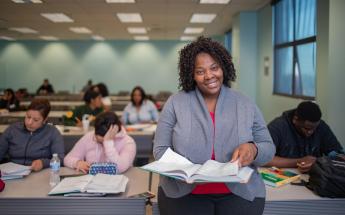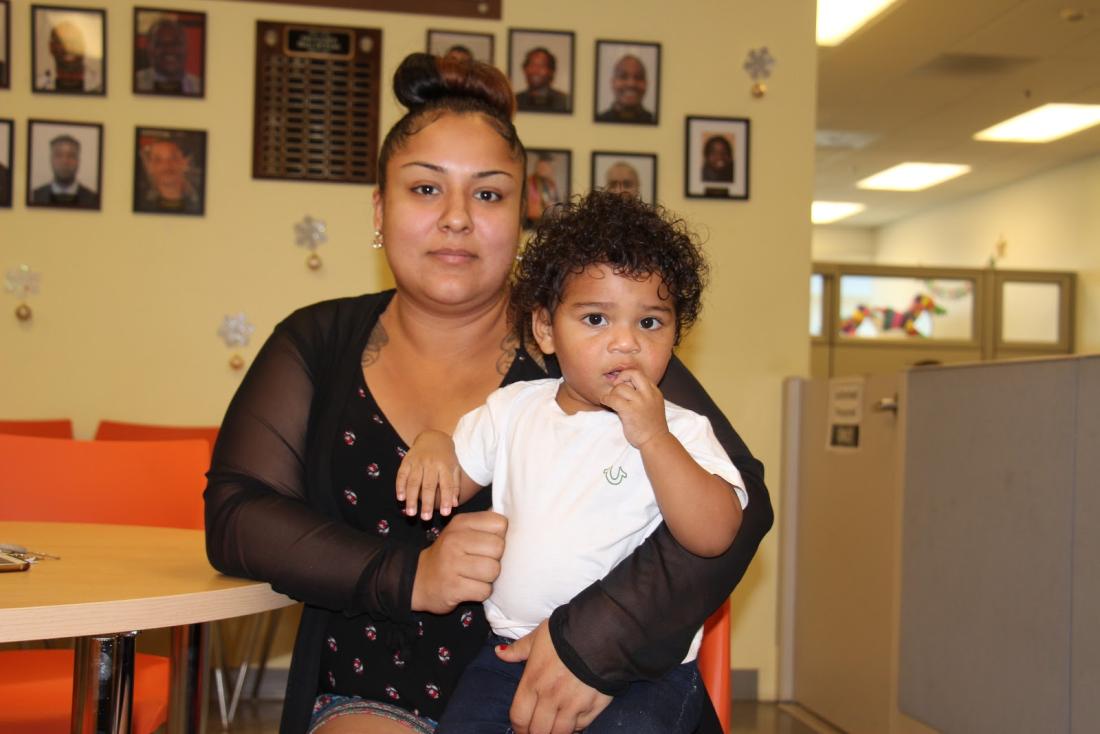School Age Programs (SC)
Column 1 content
Column 2 content
Careers in School Age Programs
These careers ensure children are getting the best educational programs and environments to promote and engage their abilities from one stage of development to the next. Working in this field requires attention to detail and a broad understanding of child development through age 8.
Here are some possible occupations you can work towards by having a School Age Programs Skill Certificate:
Career information below taken from bls.gov November 2019. Go to bls.gov for most current career information
Plan and administer programs that improve the skills and knowledge of their employees.
National data
| Typical Education Level: | Salary: | Hourly Median Wage: |
|---|---|---|
| Bachelor’s Degree | $60,870/year | $29.26/hour |
| Work Experience in a Related Occupation: | Job Outlook 2018-2028: | Number of Jobs 2018: |
| Less than 5 years | 9% increase (faster than average) |
306,400 |
Plan, direct, or coordinate the academic and non-academic activities of preschool and childcare centers or programs.
National data
| Typical Education Level: | Salary: | Hourly Median Wage: |
|---|---|---|
| Bachelor’s Degree | $53,550/year | $25.74/hour |
| Work Experience in a Related Occupation: | Job Outlook 2018-2028: | Number of Jobs 2018: |
| None needed | 2% increase (little or no change) |
49,130 |
Oversee school curricula and teaching standards; develop instructional material, implement it, and assess its effectiveness.
Data for Los Angeles/Long Beach/Anaheim
| Typical Education Level: | Salary: | Hourly Median Wage: |
|---|---|---|
| Master's Degree | $82,620/year | $39.72/hour |
| Work Experience in a Related Occupation: | Job Outlook 2018-2028: | Number of Jobs 2018: |
| 5 years or more | 6% increase (as fast as average) |
6,630 |
What You’ll Learn at LASC in School Age Programs
With your Skill Certificate in School Age Programs you’ll be prepared to engage children in learning and social interaction:
- Explain and implement educational strategies for school age children through developmentally appropriate curriculum you create.
- Positively set the scene for a classroom that promotes exploration and creativity and effectively navigate educational challenges as they arise.
- Want to get an associate degree? LASC offers associate degrees in Child Development so you can save money on your first two years in college learning from committed, enthusiastic faculty before transferring to a four-year college or university. There's also our Associate in Science in Early Childhood Education for Transfer where you can have guaranteed admission into a CSU and some UCs! Visit your academic counselor to find out more.
Degrees & Courses You Will Take
Review LASC’s Skill Certificate in School Age Programs, and our suggested course of study for this program. Go to LASC’s current Course Catalog for specific course information:
Major Code: 1305.15
Total Units Required: 15
Once you successfully complete this program, you should be able to:
- Integrate understanding of the needs, the characteristics and multiple influences on the development of children from birth to age eight as it relates to optimum growth and development.
- Create developmentally appropriate strategies, techniques, and curriculum incorporating domains of learning, health, safety, nutrition, as well as anti-bias and adaptation principles for working with typical and atypical developing children.
- Apply developmentally appropriate social-emotional learning strategies and positive guidance techniques in a professional early childhood setting.
- Evaluate and utilize various observation and assessment methods for measuring and recording children’s developmental progress.
- Implement various early childhood environment rating scales and assessment tools.
- Uphold professional standards (based on NAEYC Code of Ethics) for job seeking, respecting, interacting, and communicating with others (parents, staff, children, community members, colleagues and peers).
- Demonstrate strategies and techniques for building a sensitive and respectful family and community relationships.
- Develop critical-thinking and problem-solving skills for learning and promoting learning in young children.
| Required Courses: | Units |
|---|---|
| CH DEV 1 Child Growth and Development | 3 |
| CH DEV 11 Child, Family and Community | 3 |
| CH DEV 46 School Age Programs I | 3 |
| CH DEV 47 School Age Programs II | 3 |
| CH DEV 48 Positive Guidance in Early Childhood Settings | 3 |
| CH Dev 17 The Growing Brain II: From birth to five years old | 2 |
| TOTAL UNITS | 17 |
Get Ready Before You Start
Interested in a career in teaching or education? Before your first class starts at LASC, you can start preparing for your early childhood education career:
- Make an appointment with your LASC academic counselor to review LASC’s program, develop a Student Education Plan (SEP), and discuss your career goals to see if getting an associate or even transferring to a four-year college or university may be beneficial for your future career plans.
- Still in high school? Contact local elementary schools and preschools to see if you could observe for an afternoon to watch teachers in action. Talk with your high school counselor to see if they can recommend any local opportunities that you could be a part of.
Program Learning Outcomes

Once you successfully complete this program, you should be able to:
- Integrate understanding of the needs, the characteristics and multiple influences on the development of children from birth to age eight as it relates to optimum growth and development.
- Create developmentally appropriate strategies, techniques, and curriculum incorporating domains of learning, health, safety, nutrition, as well as anti-bias and adaptation principles for working with typical and atypical developing children.
- Apply developmentally appropriate social-emotional learning strategies and positive guidance techniques in a professional early childhood setting.
- Evaluate and utilize various observation and assessment methods for measuring and recording children’s developmental progress.

- Implement various early childhood environment rating scales and assessment tools.
- Uphold professional standards (based on NAEYC Code of Ethics) for job seeking, respecting, interacting, and communicating with others (parents, staff, children, community members, colleagues and peers).
- Demonstrate strategies and techniques for building a sensitive and respectful family and community relationships.
- Develop critical-thinking and problem-solving skills for learning and promoting learning in young children.
